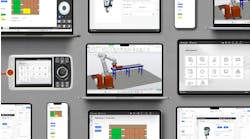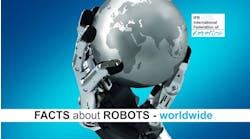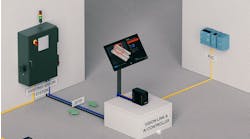The penetration of technology in the automotive sector has been palpable. Although the tag ‘smart’ is thrown around quite liberally these days, there has been a noticeable growth in the use of innovative technology in the automotive sector.
The potential that 5G technology has to shape the future of transportation is immense. Vehicle-to-vehicle, as well as vehicle-to-infrastructure communication, would be a key influencer in making roads safer and more friendly to the ecosystem. New business models, similar to on-demand rides, will continue to be supported since roads would be embedded with sensors to facilitate seamless communication.
5G Technology in the Auto Industry
Road accidents have remained the leading cause of accidents in most parts of the world. The inability to detect blind spots and delayed braking response times are among the top causes of accidents.
The increasing number of accidents has led to a greater emphasis on road safety. Several measures have been taken by authorities to address this issue such as bringing improvement to road infrastructure and intellectualizing traffic signals. Currently, the emphasis is on using the latest technology to curb fatalities.
As a result, governments are turning to the latest technologies to help reduce human-prone errors.
The inclusion of 5G technology in the automotive industry will unlock opportunities for connected cars, connected bus-stops, smart metros, and autonomous vehicles. Such facilities will translate into ecosystem scalability, navigation and augmented reality, fleet monitoring, safety, and sustainability.
The Road Ahead
The automotive industry spans the production of private to public transportation systems, and it would highly benefit from the arrival of next-gen wireless networks. When such a network technology is added to automobiles, increased control and visibility over transportation systems will be possible.
Manufacturers should look at developing end-to-end connectivity within and across cities. Communication support should include the following:
- Vehicle-to-infrastructure (V2I): In such systems, manufacturers should develop vehicles that can communicate with sensors located on traffic lights, roads, and bridges.
- Vehicle-to-vehicle (V2V): In such systems, the focus of manufacturers should be on the development of vehicles that can communicate with each other directly.
The scope of automotive manufacturing would move beyond just manufacturing cars that provide speed and comfort and focus more on the technology-side features. Hence, manufacturers will need to partner with IT companies to optimize the features of their products.
The nature of the futuristic automobile will be dynamic, which means that vehicles will be able to communicate with other vehicles to avoid potential collision in addition to communicating with drivers to maintain a safe distance.
So much has been said about 5G; however, it is crucial to say that it is the 4G network that has actually paved the way for the next-gen technologies to commemorate and go a step beyond. However, 4G technology falls short in facilitating high mobility in extremely dense or sparsely populated areas.
As a result, 5G technology will bring more life to the IoT to connect a large number of sensors and actuators with a zoomed-in focus on energy efficiency. If there’s one thing to say, it's that automotive manufacturers should broaden their scope beyond comfort to OnBoard entertainment opportunities, cooperative maneuver, autonomous navigation, cooperative perception, and remote driving.
The ongoing whirlwind leading disruption buffets the automotive vicinity through the four major trends that would radically change the approach taken by automakers to develop automobiles. These trends include:
- Electrification
- Connectivity
- Shared Mobility
- Autonomous Driving
Traditionally, OEMs have worked primarily with automakers. However, high-tech players are entering the automotive market with their technically-sound offerings. As a result, tech-partnerships and project-based collaboration are on the horizon for automotive manufacturers.
A new ecosystem in the automotive industry will be established, which will increase the number of stakeholders from just OEMs and automakers to auto tier-one suppliers, connectivity-equipment providers, mobile operators, cities and road-infrastructure providers, insurance providers, and mobility-service providers.
The focus of the smaller tech-giants is on entering the industry, while the prominent tech-giants are betting on the data generated by vehicles to be able to devise a more customer-centric solution.
Currently, several companies--Vodafone Limited, Volkswagen, Verizon, Qualcomm Technologies, Inc., Nokia, Huawei Device Co., Deutsche Telekom AG, AUDI AG, Ericsson, Robert Bosch GmbH, and more--are aggressively making a mark in the automotive industry through the utilization of the 5G technology.
The automakers should be concerned about choosing the right tech partner, who can take them a long way in the industry. Besides this, competition from the new tech players is also a matter of concern. However, the focus on the aforementioned four trends would bring in the required steadiness.
The new opportunity that 5G brings also puts several challenges on the table and most of it is on the technology side. The best way to do this is to rely on stable ecosystems to be able to ride this wave of disruption rather than being at the receiving end.
Dhaval Kate heads the Technology market research division at Future Market Insights (FMI), an ESOMAR-certified market research firm. The insights presented in this article are based on FMI’s latest report on the 5G in Automotive and Smart Transportation Market.












